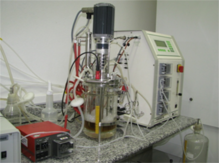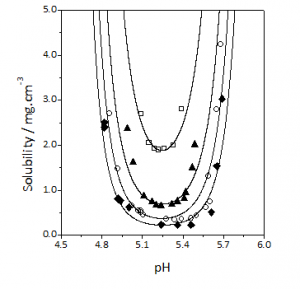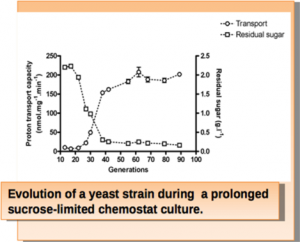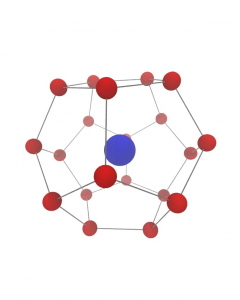Protein engineering for gene delivery
(Prof. Adriano Rodrigues Azzoni)
A major concern in gene therapy and DNA vaccination protocols using non-viral vectors is the low efficiency of gene transfer to the target cells. The objective of our research is the development of recombinant modular proteins especifically designed for gene delivery and able to take advantage of strategies used by viruses to infect mammalian cells.
Biopharmaceuticals by animal cell culture
(Prof. Aldo Tonso)
The main objective of this research line is to develop animal cell cultures processes, in order to produce biopharmaceuticals, such as rabies glycoprotein to use as a vaccine, or baculovirus bioinsecticide. In this process, new methodologies are being developed, related to respiration rate or process control in strong collaboration with basic science groups. Experiments are conducted in lab scale bioreactors, in batch, continuous or perfusion cultures.
This research line is supported by the Animal Cell Laboratory (LCA), a common laboratory between GEnBio (USP) and the Viral Biotechnology Laboratory (LaBV) of the Instituto Butantan.
More information (in Portuguese) are available at: https://www.butantan.gov.br/pesquisa/equipamentos-multiusuarios
Thermodynamics of protein solution
(Prof. Pedro de Alcântara Pessôa Filho)
This research comprises the experimental determination and the modeling of phase equilibrium data of systems occurring in downstream protein processes. Some themes currently investigated include the determination of the osmotic pressure of proteins in aqueous solutions containing co-solvents, the thermodynamic modeling of the solid-liquid equilibrium occurring in protein precipitation and the thermodynamic modeling of solid-liquid equilibrium in systems with solid-phase miscibility.
FAPESP multi-user equipments (see http://sites.usp.br/genbio/emu):
- Differential Scanning Calorimeter
Yeast physiology and metabolic engineering
(Prof. Andreas Karoly Gombert)
Yeasts are versatile microorganisms, which have been employed by humankind for centuries in the production of food, beverage, biofuels, and more recently pharmaceuticals, heterologous proteins, and building blocks for the chemical industry. Our research aims at: 1) investigating the quantitative physiology of different yeast species (e.g. from the genera Saccharomyces, Kluyveromyces, and Yarrowia), which leads to fundamental knowledge on metabolic aspects of these organisms; 2) designing and applying different metabolic and evolutionary engineering strategies, in order to improve microbial performance.
Study on the formation and dissociation of gas hydrates
(Dr. Maria Dolores Robustillo Fuentes)
The study and understanding of the mechanisms of gas hydrates formation and dissociation have applications in various areas such as flow assurance of oil and gas, water purification, capture and sequestration of CO2 and also in the possible use as an alternative energy source different from oil or coal. However, there are many unknowns regarding their formation/dissociation -especially under extreme conditions of pressure and temperature. Therefore, it is necessary to study and understand the mechanisms of formation and dissociation of gas hydrates at high pressures and develop new methodologies to obtain reliable thermodynamic and kinetic equilibrium data representing the behavior of gas hydrates present in nature, as well as considering the main factors that can influence the process. The objective of this research is to establish a methodology based on high pressure differential scanning calorimetry to construct phase diagrams of gas hydrates, determine their thermodynamic properties, investigate the formed solid phases and the kinetics of formation/dissociation of these compounds with or without additives.





